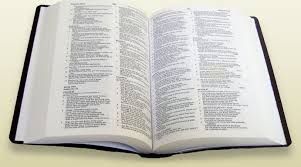
“I cry out to you, O Lord; I say, “You are my refuge, my portion in the land of the living.” (Psalm 142:5: The Book of Common Prayer, p.798).
I am drawn to the words, “You,,,,are my portion in the land of the living.”
The world around me tells me that I will never be satisfied unless I own the biggest, the fastest, the most pleasurable. Some around me have a larger portion then I do. I probably have a larger portion than others in some things. Consumerism says that unless I have the biggest portion of everything, I am missing something in life. The weight loss consumer market shames me and others by telling us that unless we buy their products to make us look more like the status quo our lives are worthless.
In Chapter 34 of The Rule of Saint Benedict entitled Distribution of Goods According to Need, he quotes from Acts 4;35. “Distribution was made to each as he had need.” In the rest of the chapter, Benedict offers advice for those who need more and those who need less. He is telling us that God knows our needs better than we do. Benedict’s Rule is a balance between strictness and flexibility. He recognizes our need to honor God in one another, but leaves the decision of what to work on up to us individually.
The Psalmist and St. Benedict are reminding us that God is our portion who provides for each of us from the fullness of God’s Self in grace and love. Our false sense of self says we never have enough, or makes us guilty if we have too much because of circumstances beyond our control. As we submit ourselves to God through contemplative prayer we are drawn into the mystical experience that God’s Truth is all we need. In God is our true selves. In God is our sense of love and acceptance of where we are. In God is our grace to let go of ourselves and find strength and endurance to keep following the path to where God wants us to be. After all, God is our portion in the land of the living.
How is God your portion in the land of the living?
Amen.
Brother Anselm Philip King-Lowe, OSB

